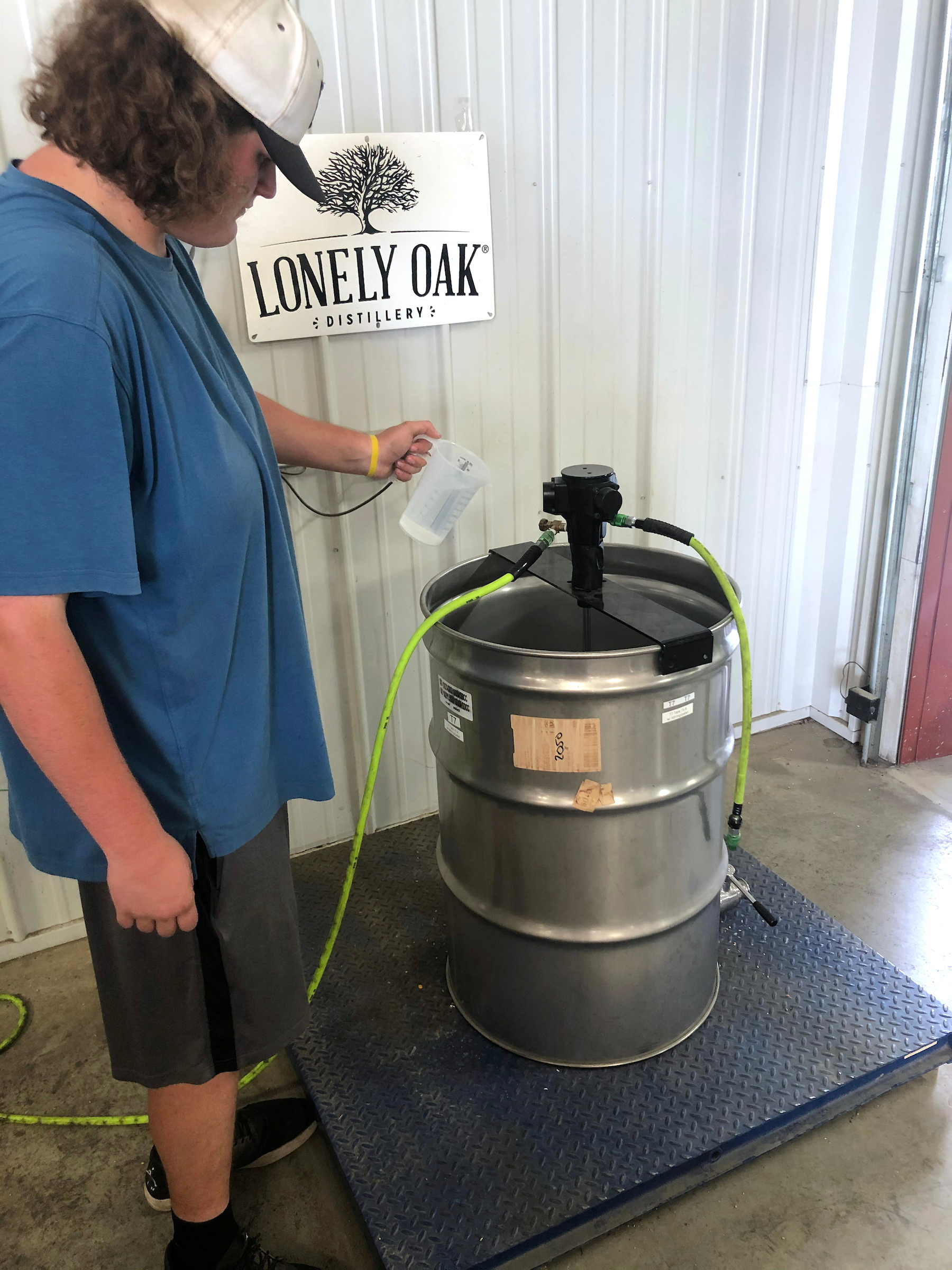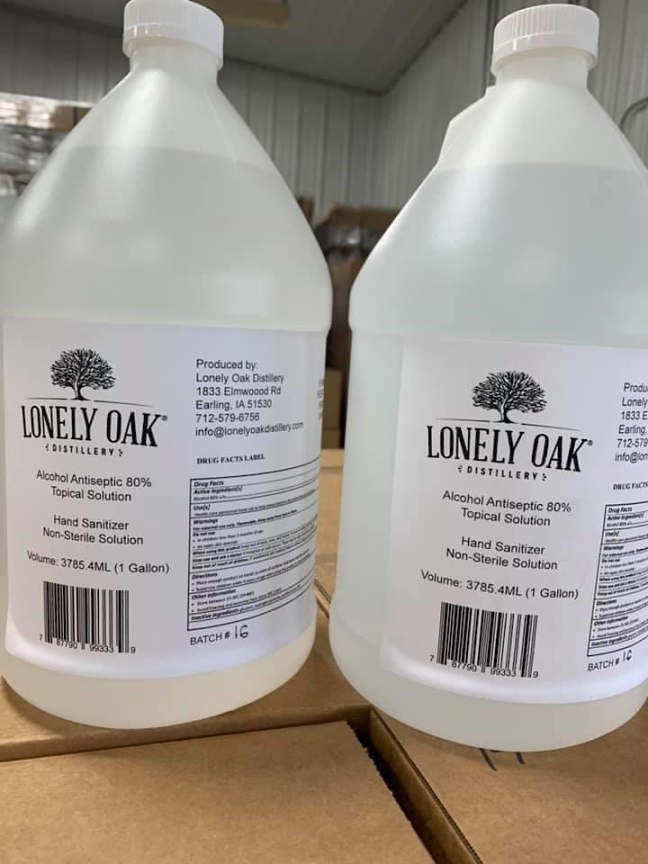EARLING, Iowa — One day, the Hoffmann family was making whiskey. The next, they were churning out hand sanitizer to help frontline workers in the COVID-19 pandemic.
For the Hoffmann children – twins Dave and Will, both juniors in agricultural systems technology at Iowa State University, and Lexi, recent graduate in elementary education – the pandemic not only altered their education but their family’s business as they decided to change course suddenly.
The children left Ames for home in Earling after Iowa State migrated coursework online about halfway through the spring semester due to the pandemic. Dave and Will adapted to online classes and labs. Lexi’s semester of student-teaching came to a halt.
In the meantime, they got back to work at the family business, Lonely Oak Distillery. The family decided to alter the distillery’s production following conversations with fellow distillers in Iowa and after the federal government changed laws to permit distillers to make hand sanitizer.
“This was something that we could do for everybody else while the world is struggling,” Will said. “We can do something small to bring that hope back.”
Responding to a growing need

Will Hoffmann, junior in agricultural systems
technology, adds hydrogen peroxide to make a
45-gallon batch of hand sanitizer.
The call to help others – and the innovative thinking to fill a community need – is embedded in the family’s culture.
“Our parents and grandparents owned and ran a nursing home for 60-plus years,” Lexi said. “We would watch the news during this pandemic and see that medical professionals didn’t have enough. That hit home because we grew up in that situation, watching our mom and grandma take care of people their whole lives.”
The Hoffmanns were able to use a lot of the same tanks and mixers used to make alcohol to instead make hand sanitizer.
When the process began, they used their own alcohol to make hand sanitizer and produced 100 to 150 gallons a week. Once they switched to purchasing alcohol to use in production, that output skyrocketed to 700 to 800 gallons a day. To date, they have produced nearly 10,000 gallons of hand sanitizer.
“We couldn’t make it fast enough,” Lexi said. “Every bottle we made was going out the door within seconds. It was crazy.”
They prioritized health care facilities, which received about half of the 10,000 gallons. Next, they focused on local frontline workers such as police and fire departments. Then, they started selling bottles to consumers.
Lessons learned
The family worked at least eight hours a day, seven days a week for about a month and a half producing hand sanitizer.
“We learned to adapt. Being able to adapt and keep grounded and remember why you’re doing what you’re doing is so important,” Dave said.
They are now for the most part back to their typical work at the distillery, working to catch up to where production would normally be this time of year. Dave and Will are looking forward to returning to campus this fall. Lexi now faces a new learning curve: her first teaching job at an elementary school in western Iowa.
Iowa State was Lexi’s only college visit when she was in high school. She fell in love with its “small-town feel.” Her younger twin brothers visited their sister and spent time on campus with their high school’s engineering program. For two young men who love agriculture and Cyclone football, Iowa State was exactly where they wanted to be.
All three are taking life lessons away from their work experience during the pandemic: on business, innovation and community.
“We’re really blessed to be able to come out here and help people in a way that we never imagined we would need to,” Lexi said. “It was a lot of long days, a lot of hard work, a little bit of fighting, but compared to what those health care workers and people with the actual virus are going through, it was nothing. We’d do it all over again.”
